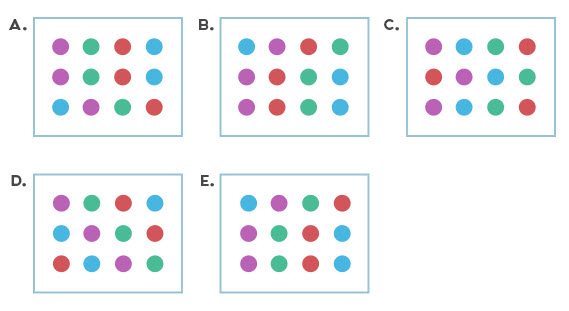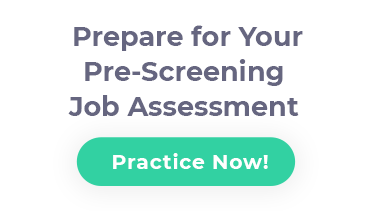You’ve come here because you’ve either applied for or you’re thinking to apply for a job at Deloitte. The article will give you some insight and tips to help you with the process whether it’s your first or 20th time applying for a job with Deloitte.
What Is Deloitte?
Founded in 1845 by William Welch Deloitte, Deloitte Touche Tohmatsu Limited or simply, Deloitte is one of the Big Four accounting firms. The firm offers numerous professional services such as:
- Auditing
- Consulting
- Financial Advisory
- Risk Advisory
- Tax & Legal Advice
Since it’s launch in 1845, Deloitte has expanded to offer its services in over 100 locations across the globe in the United States, United Kingdom, Canada, South Africa, Australia, Brazil, India, China, and many more.
As of December 2025, Deloitte employs at least 415,000 people globally. These employees enjoy benefits such as:
- Medical, Dental, & Vision
- Paid Time Off
- Live Well Program
- Deloitte Marketplace (Discount Plan)
- LifeWorks – For new parents
- Life & Accident Insurance
- 529 College Savings Plan
- Paid and unpaid sabbaticals
- Tuition assistance
These are only a few of the benefits offered at Deloitte.
What Is Deloitte’s Hiring Process?
Job seekers looking to work at Deloitte will have to undergo a 3-4 round recruitment process. The process is dependent on the job being applied for and the country in which the job is based. Below is an outline of the recruitment process:
Initial Screening
The candidate’s online application, which would have been submitted after browsing and selecting jobs posted on Deloitte’s careers page, is reviewed by Talent Acquisitions. This team is responsible for deciding if your qualifications and experience match the job’s criteria.
Interview Process
Following the initial screening process, successful candidates will be contacted for an interview. This is a multi-step process:
- First contact/telephone interview which gives the candidate the chance to ask questions about the job.
- Face-to-face/technical interview which is specific to the job for which the candidate is applying. This stage might include multiple interview rounds, which is dependent on the service line and country in which the job is located. In these interviews the candidate’s technical and motivational fit is assessed via discussions with a panel.
- The last stage of the interview process involves a meeting with the head of the department for which the candidate is applying.
Assessments
During this stage of the recruitment process, if necessary, the candidate will sit for the necessary psychometric tests for the job in question. These are either done online or in person at a Deloitte office or assessment center. It is estimated that about 60% of candidates get rejected solely based on their performance in the aptitude tests. These tests are usually done within two weeks of the interviews.
Below are some of the aptitude tests Deloitte candidates will be required to pass:
In some countries Deloitte are using the Bryq Assessment Test and TestGorilla Assessments.
Pre-Employment Checks
After successfully completing the assessments, the candidate is then subjected to pre-employment screening. This is essentially a background check. Deloitte will look into the candidate’s criminal history (if any), previous employment history, verify the candidate’s academic qualifications and contact the references on file. Once this is completed successfully, Deloitte will proceed to make the candidate an offer.
Job Offer
Following a successful background check, Deloitte will make a verbal offer, which will be then followed by a contract. The contract which will outline the proposed salary and employment conditions can be reviewed by the candidate. If necessary, some negotiation can take place and then the contract is signed by the candidate.
Onboarding
The onboarding process is quite simply an orientation. Once Deloitte and the candidate come to an agreement, Deloitte embarks on an orientation process with the candidate. The candidate is introduced to the systems they will be using and taught basic office procedure. This is handled by the Human Resources department as well as a member from the team to which you will be employed. During this entire process, a Talent Advisor will keep the candidate abreast of the protocol to be followed.
What Qualities Are Deloitte Recruiters Looking Out For?
Deloitte is one of the world’s top companies, so it would be unreasonable for any college graduate to expect to walk into a job there. The company is known to have a very high standard and very rigorous recruitment process, but what are the recruiters looking for? Below are some of the qualities that Deloitte candidates are expected to have:
- Solution Oriented
- Commercial Awareness
- Motivated
- Excellent Communication Skills
- Adaptable
- Goal Oriented
- Excellent Planning & Organizational Skills
How to Prepare for the Deloitte Recruitment Process
How do I prepare for this rigorous recruitment process? What do I do to ensure my application is top of the pile? First and foremost, as recommended by Deloitte’s recruitment team, ensure you sit and carefully think about what you want. This will give you some insight into how to go about your job hunt, as you will most likely only look for jobs directly aligned with what you want. What you want is only the tip of the iceberg however, as you need to think about your value and create your value proposition. This can be approached by:
- Considering the values you provided to your previous/current employer.
- Determine all the skills you are able to offer to Deloitte.
- How best can you demonstrate these skills in an interview setting. Afterall, if you can’t prove it, it’s as if it doesn’t exist.
- Think about the roles at Deloitte that may best use your skillset.
Once these are well thought out, the jobs you choose to apply for are most likely to be the jobs you are best suited for. Not only that, but your resume would be best tailored to suit these roles. Recruiters have also strongly advised that applicants do not apply for multiple jobs within the firm, as it is a strong indication that the job-seeker has no clue what he/she wants.
Conclusion
Landing a job at Deloitte is not impossible, it just takes preparation and practice. Spend time practicing for your exams and preparing for your interviews and when the day comes, put your best foot forward.
All the best with your application!

 How many more jobs will there be in 2026 for environmental engineer technicians according to the predictions given?
How many more jobs will there be in 2026 for environmental engineer technicians according to the predictions given?




